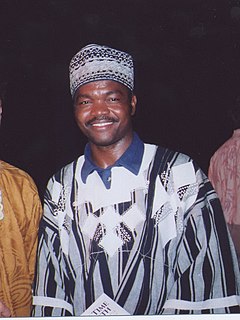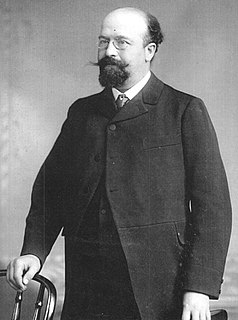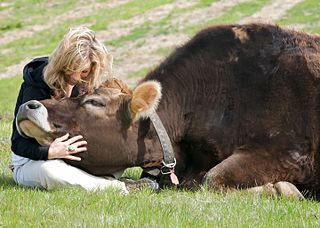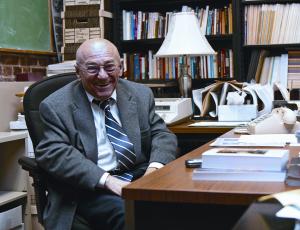Top 516 Customs Quotes & Sayings - Page 9
Explore popular Customs quotes.
Last updated on April 19, 2025.
However much pains may be taken to combine the soldier and the citizen in one and the same individual, whatever may be done to nationalize wars, never will it be possible to do away with the professionalism of the business; and if that cannot be done, then those who belong to it will always look upon themselves as a kind of guild, in the regulations, laws, and customs in which the "Spirit of War" finds its expression. It would be very wrong to look down upon this corporate spirit, or esprit de corps, which may and should exist more or less in every Army.
With the greatest respect, we do not make the criminal law on the basis of opinion polls. A majority of 9:1 could be in favour of a ban in my constituency, but I would not regard that as conclusive, and I hope that we never would. If we start having opinion polls about all the unpleasant and distasteful habits and customs of some members of society, and suggesting that their findings should be made part of the criminal law, foxhunting would come way down the list, and quite a lot of strange enactments would have to go through the House.
Let me tell you about customs, James," said Lillian. "I am not accustomed to being summoned to someone else's home. You're very fortunate that I came." "I am indeed blessed," Dad told her. "I am also, by the way, called Jon." Lillian looked faintly surprised. "Are you?" "Really?" Dad asked. "Really? I was the only Asian guy who went to our school. I kind of stood out. While you are an identical twin, and I still managed to know your name.
There is nothing in England that exercises a more delightful spell over my imagination than the lingerings of the holiday customs and rural games of former times. They recall the pictures my fancy used to draw in the May morning of life, when as yet I only knew the world through books, and believed it to be all that poets had painted it; and they bring with them the flavour of those honest days of yore, in which, perhaps with equal fallacy, I am apt to think the world was more home-bred, social, and joyous than at present.
Historically the customs and traditions of day-to-day life in Africa have been dismissed by Western cultural anthropologists as primitive, chaotic, pagan activities that should be replaced by Christianity, the only civilized religion. The West has also long assumed that it should convert tribal cultures to literacy, which is to say an entirely different way of looking at the world, of living in the world. Most Africans who have achieved a comfortable Western lifestyle are Christian. Why? Because it comes with the package: Christian-ity, literacy, and a material lifestyle all come together.
Once I passed through a populous city imprinting my brain for future use with its shows, architecture, customs, traditions, Yet now of all that city I remember only a woman I Casually met there who detained me for love of me, Day by day and night by night we were together—all else Has long been forgotten by me, I remember I say only that woman who passionately clung To me, Again we wander, we love, we separate again, Again she holds me by the hand, I must not go, I see her close beside me with silent lips sad and tremulous.
Real knowing comes up when we stand in the appropriate place. But usually we don’t. First we want to understand something according to individual knowledge, prejudice, customs and habits. This means we are standing up in our individual place, not the universal perspective. This egoistic behavior makes it very difficult to see the overall picture. But buddhas and ancestors recommend that we first stand up in the appropriate place. Just stand up, be present in the Universe itself.
If one looks at all closely at the middle of our own century, the events that occupy us, our customs, our achievements and even our topics of conversation, it is difficult not to see that a very remarkable change in several respects has come into our ideas; a change which, by its rapidity, seems to us to foreshadow another still greater. Time alone will tell the aim, the nature and limits of this revolution, whose inconveniences and advantages our posterity will recognize better than we can.
All these think tank experts in Washington at the Woodrow Wilson Center say, "It's really, really a dangerous thing. It's just not right. The president of the United States should never, ever make his first foreign trip to the Middle East! Never, ever. Because it's too fraught with potential disaster. Because President Trump clearly is not sophisticated enough to know the idiosyncrasies, the customs, and the requirements." That's right, no president ever has. Do you know that there has never by a direct flight from Riyadh, Saudi Arabia, to Tel Aviv until Donald Trump did it? Never.
Most men are followers, and implicitly rely upon the judgment of others. They mistake solemnity for wisdom, and regard a grave countenance as the title page and Preface to a most learned volume. So they are easily imposed upon by forms, strange garments, and solemn ceremonies. And when the teaching of parents, the customs of neighbors, and the general tongue approve and justify a belief or creed, no matter how absurd, it is hard even for the strongest to hold the citadel of his soul. In each country, in defence of each religion, the same arguments would be urged.
When I was a child, for a public/civil servant to be caught in corrupt practices, that individual will be a pariah. He will be a complete reject of the society; he/she could not raise his or her voice to speak in the public. So what happened between that time and now? That time when a public officer, prison or customs officer caught in corruption hides his face in shame amongst his peers, he just couldn't come out publicly. Today, when they come back, they get chieftaincy titles, they are received in grand style, cows are killed, they ride on white horses.
It must be therefore, since the enemies of the Jews belonged to the most diverse races, since they lived in countries very distant from each other, since they were ruled by very different laws, governed by opposite principles, since they had neither the same morals, nor the same customs, since they were animated by unlike dispositions which did not permit them to judge of anything in the same way, it must be therefore that the general cause of anti-Semitism has always resided in Israel itself and not in those who have fought against Israel.
Good and Evil are names that signify our appetites and aversions, which in different tempers, customs, and doctrines of men, are different: And diverse men differ not only in their judgment, on the senses of what is pleasant and unpleasant to the taste, smell, hearing, touch, and sight, but also of what is conformable, or disagreeable to Reason, in the actions of the common life. Nay, the same man, in diverse times, differs from himself, and one time praiseth, that is, calleth Good, what another time he dispraiseth, and calleth Evil.
I appeal from your customs. I must be myself. I cannot break myself anylonger for you, or you. If you can love me for what I am, we shall bethe happier. If you cannot, I will still seek to deserve that youshould. I will not hide my tastes or aversions. I will so trust thatwhat is deep is holy, that I will do strongly before the sun and moonwhatever inly rejoices me, and the heart appoints. If you are noble, Iwill love you; if you are not, I will not hurt you and myself byhypocritical attentions. If you are true, but not in the same truthwith me, cleave to your companions; I will seek my own.
Traveling through the world produces a marvelous clarity in the judgment of men. We are all of us confined and enclosed within ourselves, and see no farther than the end of our nose. This great world is a mirror where we must see ourselves in order to know ourselves. There are so many different tempers, so many different points of view, judgments, opinions, laws and customs to teach us to judge wisely on our own, and to teach our judgment to recognize its imperfection and natural weakness.
To many, Indian thought, Indian manners; Indian customs, Indian philosophy, Indian literature are repulsive at the first sight; but let them persevere, let them read, let them become familiar with the great principles underlying these ideas, and it is ninety-nine to one that the charm will come over them, and fascination will be the result. Slow and silent, as the gentle dew that falls in the morning, unseen and unheard yet producing a most tremendous result, has been the work of the calm, patient, all-suffering spiritual race upon the world of thought.
In the olden times, the diversity of groups was largely a geographical matter. There were many societies, but each, within its own territory, was comparatively homogeneous. But with the development of commerce, transportation, intercommunication, and emigration, countries like the United States are composed of a combination of different groups with different traditional customs. It is this situation which has, perhaps more than any other one cause, forced the demand for an educational institution which shall provide something like a homogeneous and balanced environment for the young.
We set up a certain aim, and put ourselves of our own will into the power of a certain current. Once having done that, we find ourselves committed to usages and customs which we had not before fully known, but from which we cannot depart without giving up the end which we have chosen. But we have no right, therefore, to claim that we are under the yoke of necessity. We might as well say that the man whom we see struggling vainly in the current of Niagara could not have helped jumping in.
Man is concentric: you have to take fold after fold off of him before you get to the centre of his personality. You must get below his animal nature, habits, customs, affections, daily life, and sometimes go away down into the heart of the man, before you know what is really in him. But when you get into the last core of these concentric rings of personality you find a sense of the infinite-a consciousness of immortality linked to something higher and better.
It is not how we breed, keep and kill animals for human consumption that has been the impetus for vegetarianism for thousands of years. It is that we breed, keep and kill animals for human consumption. Throughout the centuries the common thread in the arguments against eating animals is the fact that since we have no nutritional requirement for the flesh or fluids of animals, killing them to simply satisfy our taste-buds or habits or customs amounts to senseless slaughter, and senseless slaughter is no small thing.
The thinking man must oppose all cruel customs no matter how deeply rooted in tradition or surrounded by a halo. We need a boundless ethics which will include the animals also. My life is full of meaning to me. The life around me must be full of significance to it. If I want others to respect my life, then I must respect the other life I see however strange it may be to mine. Ethics in our western world has hitherto been largely limited to the relation of man to man... but that is a limited ethics.
Three classes inhabited the city (Alexandria in Egypt): first the Aegyptian or native stock of people, who were quick-tempered and not inclined to civil life; and secondly the mercenary class, who were severe and numerous and intractable...; and, third, the tribe of the Alexandrians, who also were not distinctly inclined to civil life, and for the same reasons, but still they were better than those others, for even though they were a mixed people, still they were Greeks by origin and mindful of the customs common to the Greeks.
Our country, customs, laws, our ambitions, and our notions of fit and fair-all these we never made; we found them ready-made; we but quote from them. What would remain to me if this art of appropriation were derogatory to genius? Every one of my writings has been furnished to me by a thousand different persons, a thousand things; wise and foolish have brought me, without suspecting it, the offering of their thoughts, faculties, and experience. My work is an aggregation of beings taken from the whole of nature. It bears the name of Goethe.
I've actually spent about half of my life overseas in the third world. I grew up in Tanzania, East Africa, and later lived in South-West Asia. In general, everywhere I go, I am treated with great respect and hospitality, but I need to be sensitive to cultural, tribal and ethical customs of the local people. In this modern era of technology, I think we forget that the most important thing when traveling is to listen and learn, and establish relationship, and not be hidden behind technology like Goretex, emails, satellite phones, and insulated from the people around you.
In undeveloped social groups, we find very little formal teaching and training. Savage groups mainly rely for instilling needed dispositions into the young upon the same sort of association which keeps adults loyal to their group. They have no special devices, material, or institutions for teaching save in connection with initiation ceremonies by which the youth are inducted into full social membership. For the most part, they depend upon children learning the customs of the adults, acquiring their emotional set and stock of ideas, by sharing in what the elders are doing.
I know you were just trying to help. But I passed the point of help a long time ago. Look, I know about your people and customs, and I know you were raised inside a cage. The last thing you need is to be saddled with a man who can barely walk. Why don't you just go and get your own place and live? I'll be happy to put you on all my accounts. You'll never want for anything. (Adron)I can't do that. (Livia)Why not? (Adron)Because I love you. (Livia)
Granted the endless variations of moral customs, still the essential standards persist. As in a scientific laboratory, all else may change but the standards are unalterable- disinterested love of truth, fidelity to facts, accuracy in measurement, exactness of verification-so, in life as a whole, the towering ethical criteria remain unshaken. Falsehood is never better than truth, theft better than than honesty, treachery better than loyalty, cowardice better than courage.
I asked myself, 'How are you going to change all these people, they have different values, different customs, different language, different interpretations?' So that’s the time I joined the Ku Klux Klan in Miami. The reason I joined is to see if I could change them. So I dissolved that organization in a month-and-a-half, alone. [Applause] Then I joined the White Citizen Council. The WCC hates foreigners – all foreigners. So I joined that organization; I dissolved it in one month.
We must look at what immigration to America involves. To the new arrivals, the change is excruciating. Learning a new language and dealing with strange customs make the first years of life in the new land painful...
The economic system of the United States is a mighty engine of persuasion. It motivates people to do what otherwise they never would in return for fulfilling their dreams. In the process, people learn that there is no sharp line between physical well-being and the higher purposes of life. The comfort of owning a house is at once meeting the obligation to care for one
I think the first what would happen in the immediate wake of a hard Brexit is a lack of confidence in UK economy. Business is already telling me that they need a year or so to adjust to what is going to change in March 2019. Without a deal, tariffs would immediately kick in and we would need all the physical attributes of a customs border. And that is just the trade aspect. Imagine what would happen if, from one day to the next, we had no aviation agreement or no agreements for dealing with security across Europe.
Without any extraordinary effort of genius, I have discovered that nature was the same three thousand years ago as at present; that men were but men then as well as now; that modes and customs vary often, but that human nature is always the same. And I can no more suppose, that men were better, braver, or wiser, fifteen hundred or three thousand years ago, than I can suppose that the animals or vegetables were better than they are now.
If a thing is old, it is a sign that it was fit to live. Old families, old customs, old styles survive because they are fit to survive. The guarantee of continuity is quality. Submerge the good in a flood of the new, and good will come back to join the good which the new brings with it. Old-fashioned hospitality, old-fashioned politeness, old-fashioned honor in business had qualities of survival. These will come back.
Once again she would arrive at a foreign place. Once again be the newcomer, an outsider, the one who did not belong. She knew from experience that she would quickly have to ingratiate herself with her new masters to avoid being rejected or, in more dire cases, punished. Then there would be the phase where she would have to sharpen her senses in order to see and hear as acutely as possible so that she could assimilate quickly all the new customs and the words most frequently used by the group she was to become a part of--so that finally, she would be judged on her own merits.
Pack the one bag. Unpack it, pack it, unpack it, pack it: passeport, ticket, book, taxi, airport, check-in, beer, announcement, stairs, airplane, fasten seat-belt, air born, flight, rocking, sun, stars, space, hips of strolling stewardesses, read, sleep, clouds, falling engine speed, descent, circling, touch down, earth, unfasten seat-belt, stairs, airport, immunization book, visa, customs, questions, taxi, streets, houses, people, hotel, key, room, stuffiness, thirst, otherness, foreignness, loneliness, fatigue, life.
The high-school English teacher will be fulfilling his responsibility if he furnishes the student a guided opportunity, through the best writing of the past, to come, in time, to an understanding of the best writing of the present. He will teach literature, not social studies or little lessons in democracy or the customs of many lands. And if the student finds that this is not to his taste? Well, that is regrettable. Most regrettable. His taste should not be consulted; it is being formed.
He that would travel for the entertainment of others, should remember that the great object of remark is human life. Every Nation has something peculiar in its Manufactures, its Works of Genius, its Medicines, its Agriculture, its Customs, and its Policy. He only is a useful Traveller, who brings home something by which his country may be benefited; who procures some supply of Want, or some mitigation of Evil, which may enable his readers to compare their condition with that of others, to improve it whenever it is worse, and whenever it is better to enjoy it.

































